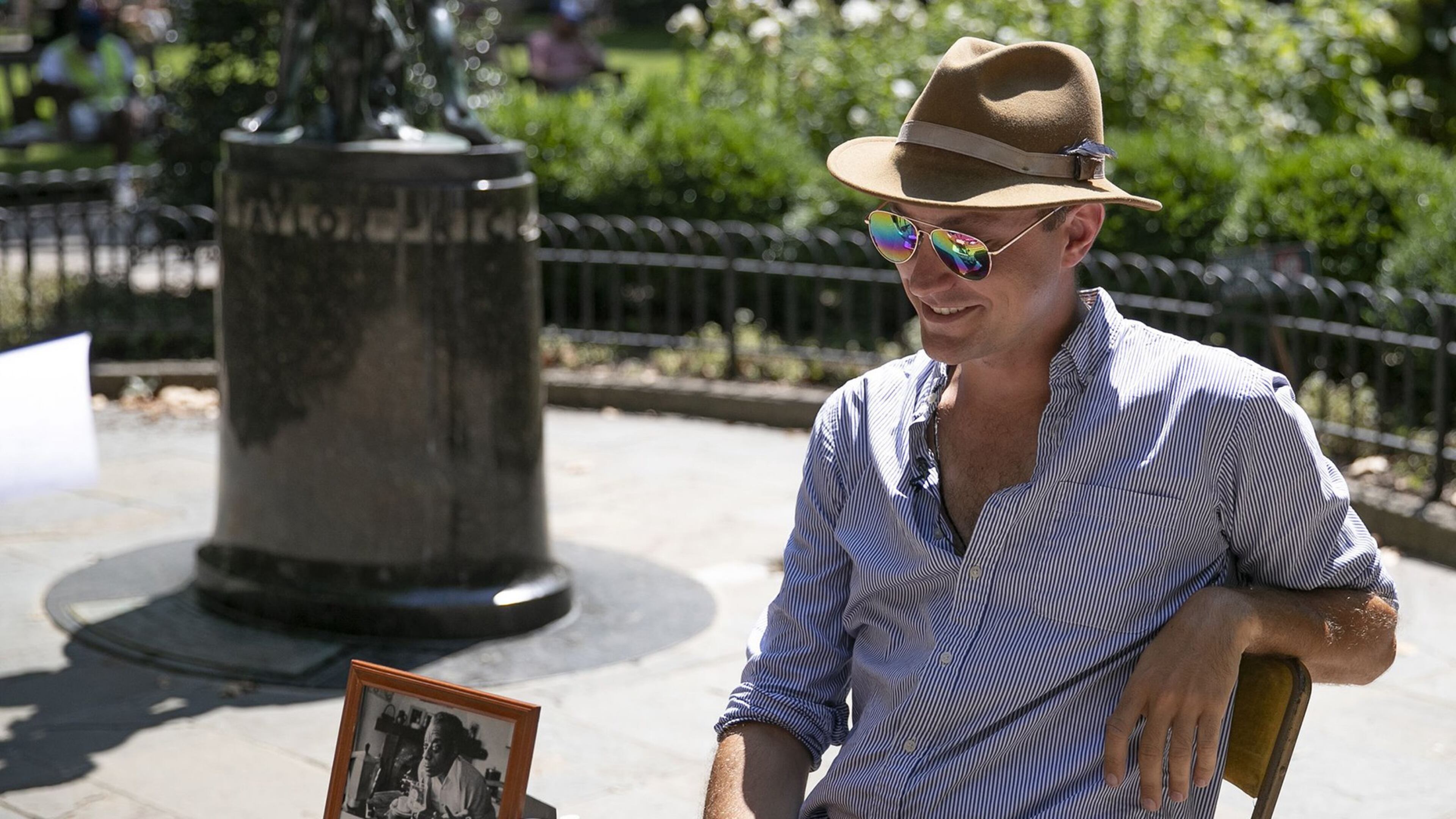Making connections through poetry

Marshall James Kavanaugh had been set up for about an hour in Philadelphia’s Rittenhouse Square — with a typewriter, a framed photo of James Baldwin, and a yellow sign that read “PICK A TOPIC GET A POEM” — when Jules Skodzinski walked up on a recent Friday.
Skodzinski, 58, a burly guy, told Kavanaugh his mom died recently. It was tough, he said, but it also brought him and his siblings closer. Could he maybe write a poem for him about strong bonds?
And in about five minutes, Kavanaugh, 32, of West Philly, did.
It began:
tested in night and day
the bonds of a family
grow stronger
through the storms
that attempt to push them away.
Skodzinski marveled at the poem, which he said he planned to share with his siblings.
“He’s an artist but also a technician,” Skodzinski said of Kavanaugh. “I think this is like the difference between saying something and singing it.”
A few minutes earlier, Kavanaugh had written a poem for a woman about breadsticks. Before that, there was one about asparagus. Later, there would come one about being black and blessed.
“The topic could be one word, or they could tell me their whole life story and I’ll turn it into a poem,” Kavanaugh said.
The suggested “donation” for one of Kavanaugh’s poems is $10 to $20. Since he’s a modern poet, he also takes credit cards, Venmo, and PayPal.
Working in heavily trafficked spots like Center City’s Rittenhouse Square and West Philly’s Clark Park, Kavanaugh — who makes his living as a poet — averages 30 to 40 poems a day, three or four days a week. It takes him just three to five minutes to compose each one.
“My process really is to just shut my brain down, stop thinking, almost get into a meditative state or trancelike state, and just the first word that pops forward is the word I put on the page and I keep doing that as each new word comes,” he said.
The novelty of using a typewriter draws people in and makes Kavanaugh’s production a more memorable experience. No matter that his weathered typewriter’s letters don’t come out evenly on the page anymore. There is poetry in that, too.
In just minutes, Kavanaugh can create for strangers, and for himself, what so many of us long for — connection, validation, and concrete proof through art that whatever else may come, this moment in time mattered.
“I think we need more poets,” Kavanaugh said. “We don’t need a society of a bunch of people bludgeoning each other on the head. We need people just trying to figure out the words to connect to each other.”

